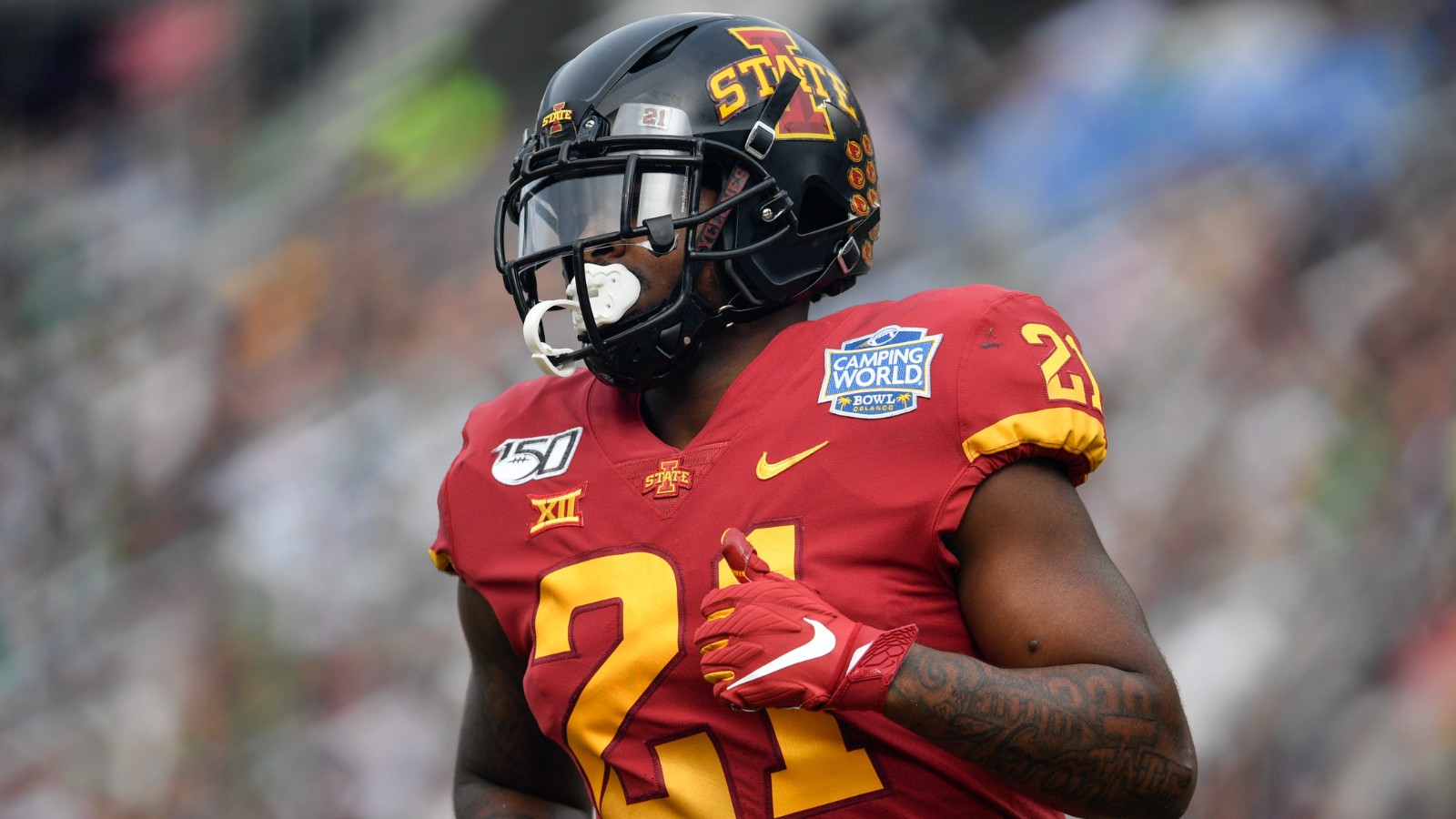
Roy K. Miller/Getty Image
Four prominent Iowa State football players from the 2022 season have been charged as part of the state’s ongoing sports betting investigation.
Running back Jirehl Brock, offensive lineman Jacob Remsburg, defensive tackle Isaiah Lee, and tight end DeShawn Hanika have been formally charged with tampering with records in connection to the ongoing Iowa Division of Criminal Investigation’s gambling probe, according to Front Office Sports.
The charges come as part of the state’s ongoing efforts to curb betting infractions within its state universities.
Jirehl Brock, a standout running back for the Cyclones, has been accused of placing wagers on four football games, two of which he actively participated in, along with an astounding 13 basketball games involving the Iowa State University teams.
The total wagers placed by Brock amount to a staggering $12,050. However, his involvement in these alleged activities has prompted the university to withhold him from preseason practices, citing undisclosed reasons.
Jacob Remsburg, an offensive lineman, has also been implicated in the scandal. He is accused of placing 273 bets totaling $1,108, with six of those wagers allegedly involving college football or basketball games
Tight end DeShawn Hanika, is facing allegations of placing approximately 70 wagers on Iowa State basketball games.
Isaiah Lee, a defensive tackle who played a pivotal role in the Cyclones’ defense, has been linked to placing 26 bets on 12 ISU football games, even betting against his own team on some occasions.
Notably, Lee is accused of betting on a game in which he himself played. The Cyclones emerged victorious in that match against Texas, winning 30-7, despite being 6.5-point underdogs according to betting odds.
The charges brought against the four players have grave implications according to the rules set forth by the NCAA.
The NCAA strictly prohibits student-athletes from betting on their own teams or on any other sports involving their institution.
If found guilty, the players could face severe penalties including permanent ineligibility to participate in NCAA-sanctioned events.